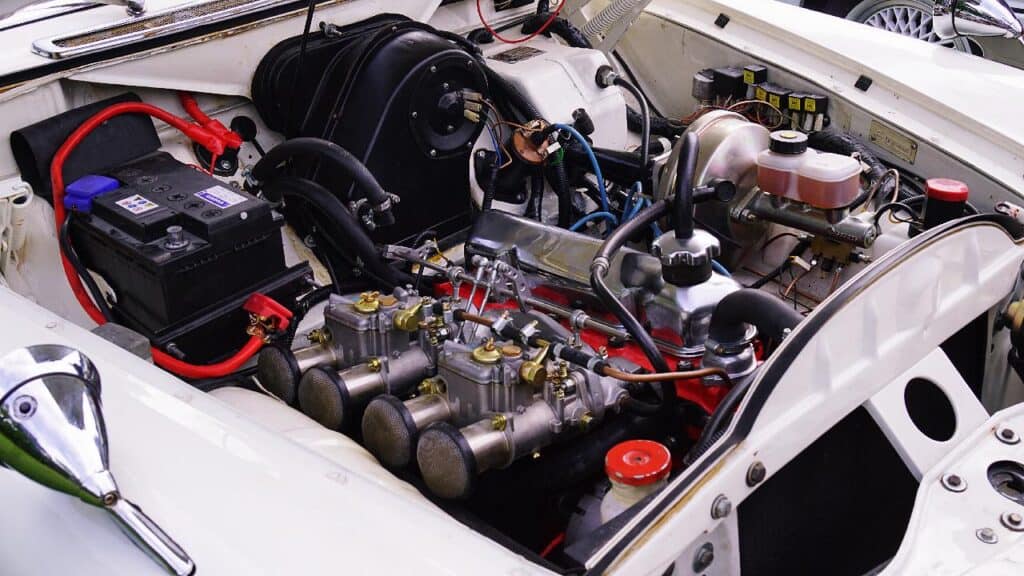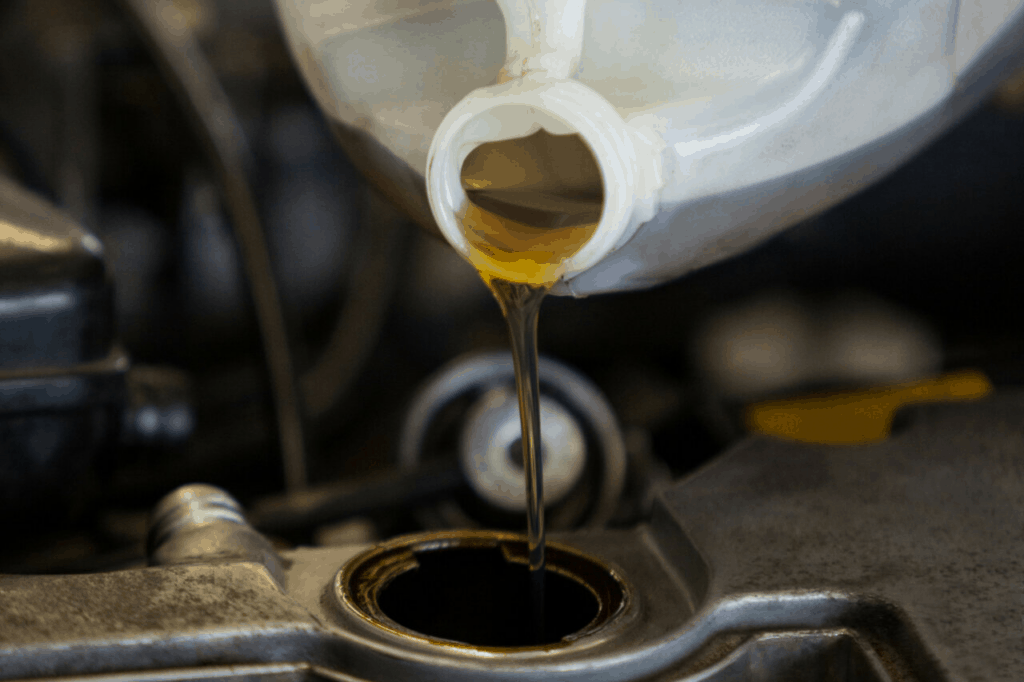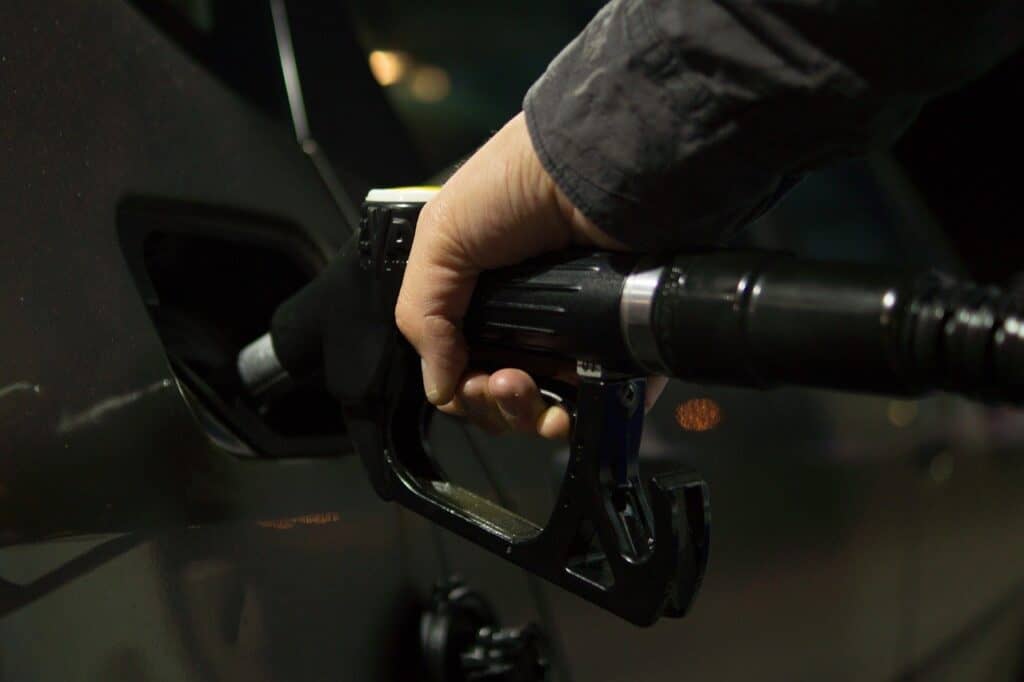Power steering is one of the greatest blessings of the 20th century. It means that pretty much anyone can drive any car they like without having to address the weight of the vehicle, directly through the steering. That’s because the power steering system does it for them. But is power steering fluid, which is essential to the function of modern cars, a fire hazard, and would we be better off opting for a vehicle without it?
Power steering fluid is not flammable. While it will burn if it gets hot enough, it is not classified as a flammable liquid. This is because it has a flashpoint around 400 degrees Fahrenheit. It could reach that temperature in an engine, but there are other fluids present that will catch fire more easily.
Let’s take a look at what makes power steering not flammable, even if it can catch fire. Check it out.
Your # 1 priority is keeping your family safe. As a firefighter, I recommend everyone has updated smoke detectors that don’t require battery changes, like these ones from Kidde, a fire extinguisher, like this one from Amerex, and a fire escape ladder if you have bedrooms above the first floor, I recommend this one from Hausse.
Also read: What Makes Something Flammable?
Can Power Steering Fluid Catch On Fire?

Power steering fluid can catch fire in the right circumstances.
Nearly everything will burn if you can get it hot enough and power steering fluid is no exception.
OSHA classifies any liquids that catch fire and have a flashpoint at or below 199.4 degrees Fahrenheit as a flammable liquid. Power steering fluid falls into this category. So, it is not a flammable liquid, even though it can catch fire.
The good news, however, is that both the gasoline in your vehicle and your transmission fluid is likely to catch fire first.
That means while you shouldn’t be careless about power steering fluid, it’s not particularly likely to be the cause of an engine fire, as long as it’s not leaking all over the engine.
In this video, power steering fluid is tested for flammability:
How Hot Can It Get?
There’s no limit on how hot anything can get if you are providing the heat, but power steering fluid typically doesn’t reach its boiling point in the day-to-day operations of a well-maintained vehicle.
That means it’s likely to stay at about 500 degrees Fahrenheit or less and most of the time, quite a bit less.
Also read: Is Antifreeze/Coolant Flammable? Beware…
What Is The Flashpoint?
The flashpoint of power steering fluid isn’t a precise temperature. That’s because there’s no standard formula for power steering fluid and each different manufacturer will use slightly different ingredients in their product.
That means we can estimate that most power steering fluids have a flashpoint of between 300 degrees and 500 degrees Fahrenheit.
That’s pretty high and it’s not the sort of temperature that you’re likely to encounter in your workshop unless you’re welding or grinding.
If you’re doing either of those things, it’s best to keep anything combustible as far away as possible and that includes power steering fluid.
Also read: Is Diesel Exhaust Fluid (DEF) Flammable?
What Is The Boiling Point?
The boiling point of power steering fluid, peculiarly, is higher than the flashpoint. This is possible because the flashpoint is not the auto-ignition point (that is the temperature at which power steering fluid will catch on fire without a source of flame) and you need a source of flame to ignite power steering fluid at this temperature.
The boiling point of power steering fluid is around 600-700 degrees Fahrenheit.
Also read: Is Hydraulic Fluid Flammable? Yes and No…
Does It Ever Evaporate?
Yes, any fluid that is boiled will lose some of that fluid as a gas (the boiling point is literally the point at which liquid starts to be converted into gas, after all).
However, this can be a problem, because when you boil power steering fluid, the resulting gas is going to have a flashpoint of around 300-500 degrees, a temperature that it might just encounter in your engine along with a spark (say from your spark plugs) to get it burning.
So, while the relatively high flash point means that fire from power steering fluid is unlikely, it doesn’t mean that it is impossible, either.
Also read: How Long Is Spilled Gasoline Flammable For?
Can I Put Power Steering Fluid In My Car When It’s Hot?

Well, it depends on how hot. If your car is at 600-700 degrees, it might be best to call the fire department rather than add any fluid to it.
But all joking aside, yes, you should ensure that the engine is warm before you add power steering fluid to your car.
That’s because in the course of ordinary operation – your car is warm. And when it’s warm, the fluids inside it are warm and that means that they expand in size.
If you fill the car when it is cold and idle and then take the car for a spin, the fluid has nowhere to go when it expands and it could break or damage the power steering apparatus and that means an expensive trip to a mechanic afterward.
But if you fill the car when it is warm, most of the fluid has already expanded and thus, you shouldn’t accidentally overfill the power steering unit.
Also read: Is Brake Fluid Flammable?
What Causes Burnt Fluid?
In most cases, burnt power steering fluid is caused by a leak onto the hot engine.
As we’ve already established – it’s not that easy to set fire to power steering fluid as it has a high flashpoint and a high boiling point.
This isn’t something to dismiss though.
If you have a leak in your power steering pump, you’ll need to fix it. Even if it doesn’t cause a serious fire (which it could, though it’s not all that likely), you’ll be wasting power steering fluid and, over time, the power steering pump could be damaged too.
Why Is My Power Steering Pump Getting Too Hot?
If your power steering pump is getting too hot the most likely explanation is that the bearings and/or gears are worn and are grinding together and they will need replacing.
Related Articles
Is Engine/Motor Oil Flammable? You May Be Surprised

